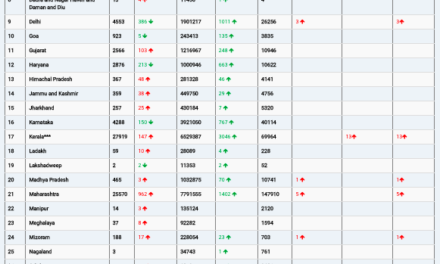As the holiday season ushers in large, festive meals, a recent study published in Nutrition & Diabetes serves as a timely reminder about the risks of eating late in the day. Researchers from the Universitat Oberta de Catalunya in Barcelona and Columbia University in New York suggest that consuming more than 45% of daily calories after 5 p.m. could significantly raise blood glucose levels, particularly in older adults with prediabetes or early-stage type 2 diabetes.
The study found that late eaters—those who consumed the majority of their calories after 5 p.m.—showed higher blood glucose levels after meals compared to those who ate earlier in the day. These elevated glucose levels are concerning, as poorly regulated blood sugar can contribute to the development of type 2 diabetes, cardiovascular diseases, and chronic inflammation.
Timing of Meals Affects Glucose Metabolism
Traditionally, late-night eating was thought to primarily contribute to weight gain due to slower metabolism at night. However, this study reveals that the timing of meals has a more significant effect on glucose metabolism than previously understood. Participants in the study who ate later in the day consumed almost double the calories after 5 p.m., with higher fat, carbohydrate, and sugar intake. Regardless of their weight or total caloric intake, late eaters exhibited poorer glucose tolerance.
Dr. Nate Wood, an expert in culinary medicine at the Yale School of Medicine, explained that eating late in the day may lead to weight gain as the body is less active and has fewer immediate uses for the energy consumed. “When we eat at night and go to sleep, our body stores that energy as fat,” he said.
The Risks of Insulin Resistance
Eating late can exacerbate insulin resistance, a condition where the body becomes less responsive to insulin, increasing the risk of diabetes. Dr. Pouya Shafipour, a family medicine expert at Providence Saint John’s Health Center in Santa Monica, pointed out that insulin sensitivity decreases as the evening progresses due to circadian rhythms. “Eating late can have long-term effects on glucose metabolism, increasing the likelihood of developing prediabetes and type 2 diabetes,” he noted.
Ideal Eating Habits for Better Health
To mitigate these risks, experts recommend eating the heaviest meal earlier in the day when the body is more insulin-sensitive. Dr. Shafipour suggests making dinner the lightest meal, focusing on healthy fats and proteins while avoiding carbohydrates, desserts, and alcohol. Meals high in refined sugars, starches, and fruits should be limited, particularly after the evening hours.
Additionally, maintaining a regular sleep schedule is crucial for balancing glucose metabolism. Consistent sleep patterns help regulate hormones like leptin, which suppresses appetite, and ghrelin, which stimulates hunger. Experts recommend 7 to 8 hours of sleep per night to support healthy metabolic functions and prevent overeating.
A Call for Mindful Eating During the Holidays
As the holidays approach, the temptation to indulge in large meals late in the day may be strong. However, this study encourages individuals, particularly those at risk for diabetes, to reconsider when they eat, as well as the quality of their meals. By prioritizing earlier, lighter meals and maintaining healthy sleep habits, it is possible to reduce the risk of developing type 2 diabetes and improve overall health in the long term.
As the study suggests, when it comes to eating, timing is just as important as what you eat.












